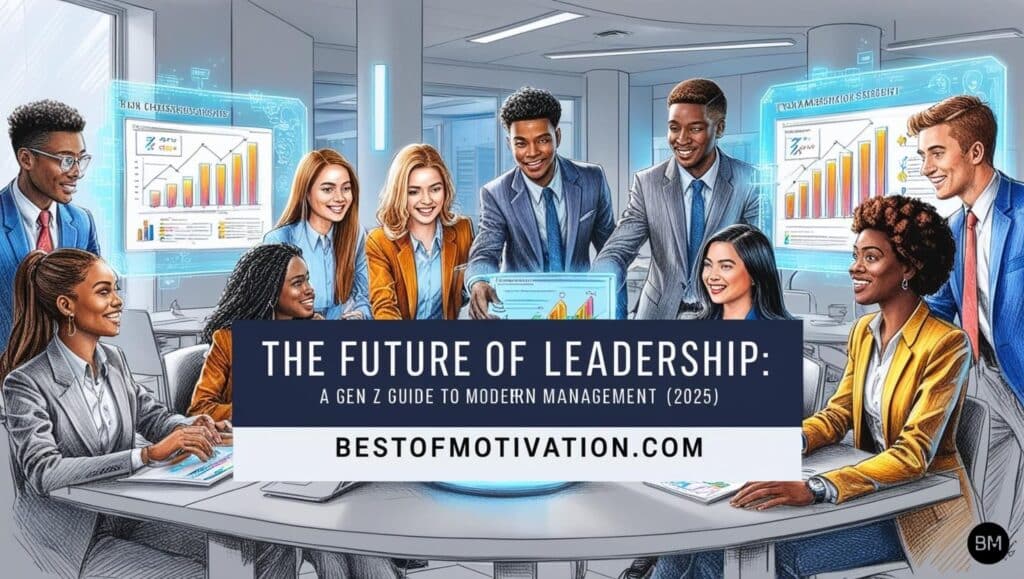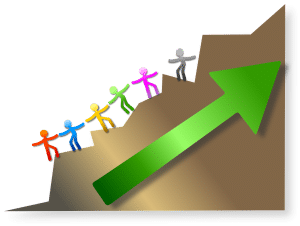Introduction: The Dawn of a New Leadership Era
By 2025, Gen Z will account for 10% of all managers globally, heralding a new era in the future of leadership. With their unparalleled digital fluency, value-driven mindset, and insistence on inclusivity, Gen Z is poised to reshape leadership dynamics to align with the evolving future of work. This generation’s innovative approach will define how organizations thrive in an increasingly hybrid, tech-centric, and purpose-driven world.
Why This Matters
As organizations grapple with evolving technologies, hybrid workforces, and shifting employee expectations, understanding the Gen Z leadership approach is crucial. Whether you’re an emerging leader or part of the workforce adapting to these changes, preparing for the next wave of management trends is essential.
Currently, leadership faces a crossroads. Traditional models emphasizing hierarchy and rigid control are being replaced by modern approaches that prioritize collaboration, empathy, and adaptability. In this transition from 2024 to 2025, the workplace is becoming more inclusive, tech-enabled, and mission-driven.
Section 1: The Evolution of Leadership 🌟

Key Leadership Statistics 2025
✨ Leadership Stats 2025
Gen Z Workforce
Gen Z Aspiring CEOs
Hybrid Work Preference
Permanent Employment Preference
Climate Action Pressure
AI Adoption in Leadership
Traditional vs. Modern Leadership
Traditional leadership centered on authority, clear hierarchies, and a “command-and-control” approach. While effective in structured environments, this model often stifled creativity and employee engagement.
In contrast, modern leadership champions collaboration, trust, and flexibility. Today’s leaders must balance business goals with employee well-being, sustainability, and inclusivity.
Why Gen Z Is Reshaping Management
By 2025, Gen Z will comprise 27% of the global workforce. This generation demands purpose-driven work, diverse teams, and equitable treatment. According to studies, 38% of Gen Z aspire to become CEOs, showcasing their ambition and belief in their ability to lead change.
Gen Z leaders bring a fresh perspective to management, leveraging their digital-first mindset and commitment to work-life balance to create organizations that thrive in an era of constant change.
Section 2: Core Leadership Principles for 2025 ⭐
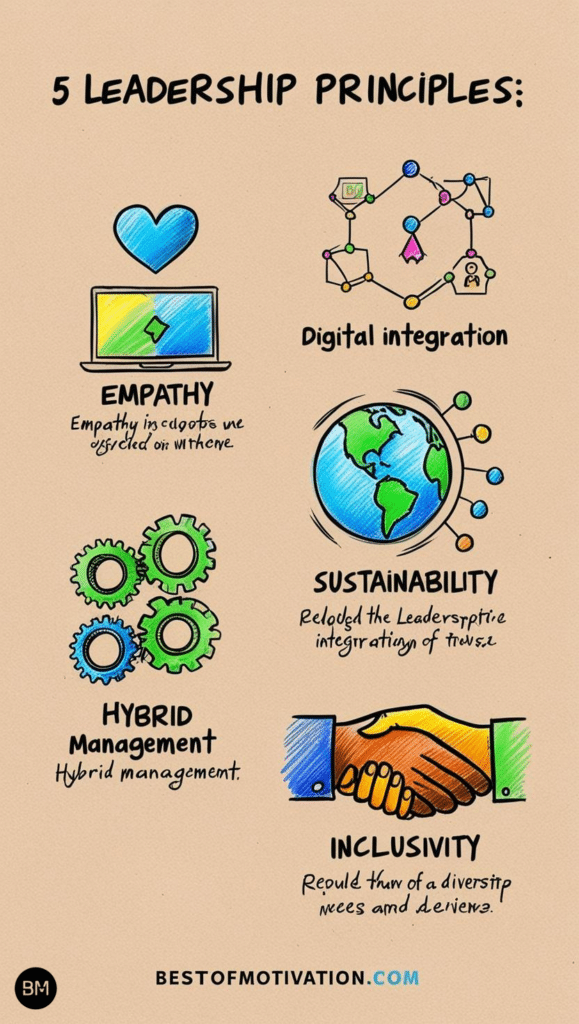
1. Empathy-First Leadership
Empathy is no longer optional. Gen Z leaders prioritize understanding team members’ needs and challenges, fostering trust and psychological safety in their organizations.
2. Digital-Native Management
Having grown up with technology, Gen Z leaders are naturally skilled at integrating AI tools, automating workflows, and managing remote teams effectively.
3. Sustainable Leadership Practices
Sustainability goes beyond environmental initiatives. It includes fostering long-term employee satisfaction, reducing burnout, and ensuring ethical decision-making.
4. Hybrid Team Management
With hybrid work here to stay, mastering the art of leading teams across physical and virtual spaces is critical. Gen Z leaders excel in leveraging technology to maintain cohesion and productivity.
5. Inclusive Decision-Making
Gen Z values diversity in thought and action. They lead by ensuring that all voices are heard, fostering innovation and deeper engagement within their teams.
Section 3: Essential Management Skills ✨
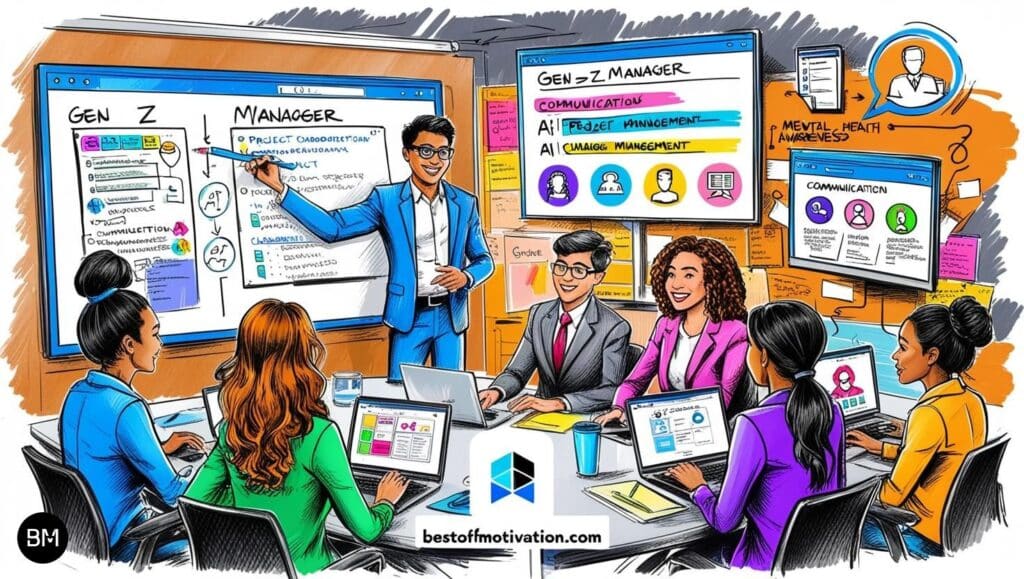
To thrive as a leader in 2025, Gen Z managers will need to cultivate the following skills:
1. AI & Technology Integration
Leaders must understand how to deploy AI tools to streamline processes, analyze data, and enhance decision-making. From predictive analytics to chatbots, the ability to harness AI is a game-changer.
2. Remote Team Building
Strong virtual leadership involves cultivating relationships, maintaining accountability, and ensuring that remote employees feel connected and valued.
3. Cross-Generational Communication
With workplaces comprising five generations, effective communication across age groups is essential. Gen Z leaders are uniquely positioned to bridge generational gaps using their digital savvy and emphasis on inclusivity.
4. Change Management
In a world of constant disruption, the ability to manage transitions—whether technological, organizational, or cultural—is vital.
5. Mental Health Leadership
As advocates for mental health awareness, Gen Z leaders will prioritize creating supportive environments that encourage transparency and well-being.
Section 4: The Gen Z Leadership Advantage 🌟
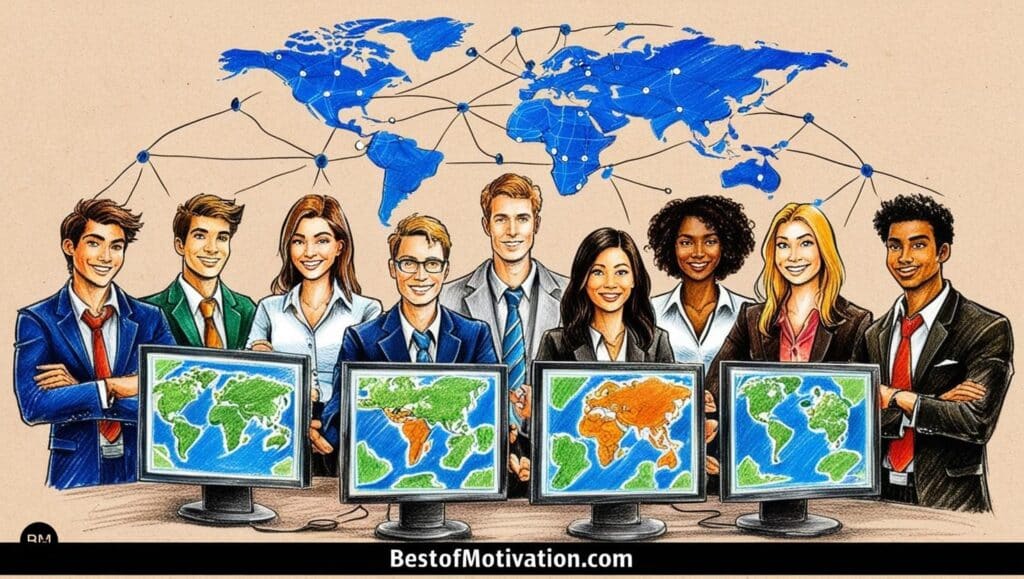
Gen Z leaders have unique strengths that set them apart:
1. Digital Fluency
From leveraging social media to mastering cutting-edge software, Gen Z leaders bring unparalleled tech expertise to the table.
2. Value-Driven Management
Gen Z emphasizes ethical practices and aligns organizational goals with larger societal issues, such as climate change and social justice.
3. Work-Life Integration
Unlike the rigid boundaries of the past, Gen Z redefines success by integrating personal fulfillment and professional growth.
4. Innovation Mindset
Their natural inclination toward questioning the status quo drives creativity and fosters disruptive solutions.
5. Global Perspective
Having grown up in a connected world, Gen Z leaders embrace global collaboration and cultural diversity as key elements of effective leadership.
Section 5: Practical Implementation Guide ⭐
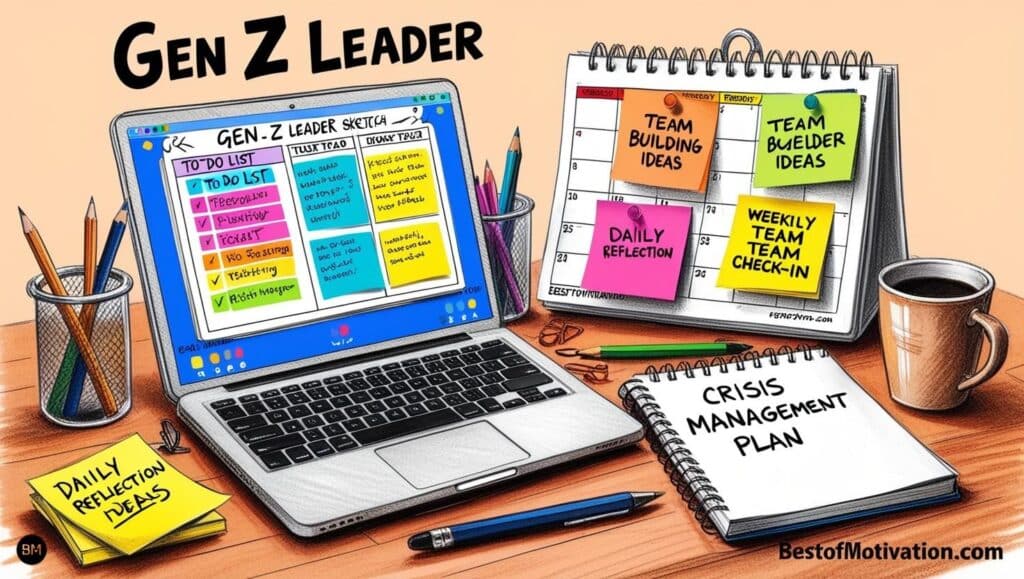
Daily Leadership Habits
- Morning Check-Ins: Start the day with team updates and clear goals.
- Feedback Loops: Create opportunities for employees to share ideas and challenges regularly.
- Time for Learning: Dedicate at least 15 minutes daily to upskilling in leadership or industry trends.
Team Building Exercises
- Virtual Coffee Breaks: Strengthen remote team connections through informal video calls.
- Skill Swaps: Encourage team members to teach each other something new, fostering collaboration and respect.
Communication Templates
- Clear Objectives Email:
- Subject: [Weekly Goals] Team Updates for [Date]
- Body: Outline key tasks, deadlines, and expected outcomes.
- Empathy-Driven Feedback:
- “I appreciate the effort you’ve put into [specific task]. One area we could refine is [specific improvement]. Let me know how I can support you.”
Decision-Making Frameworks
- SWOT Analysis: Assess strengths, weaknesses, opportunities, and threats before making critical decisions.
- Inclusive Brainstorming: Use virtual whiteboards or collaborative apps to gather diverse input.
Crisis Management Protocols
- Immediate Response Team: Identify key personnel for rapid decision-making.
- Transparent Communication: Share updates with stakeholders promptly to maintain trust.
- Post-Crisis Review: Analyze what worked and what didn’t to improve future responses.
Section 6: Future-Proofing Your Leadership 💫
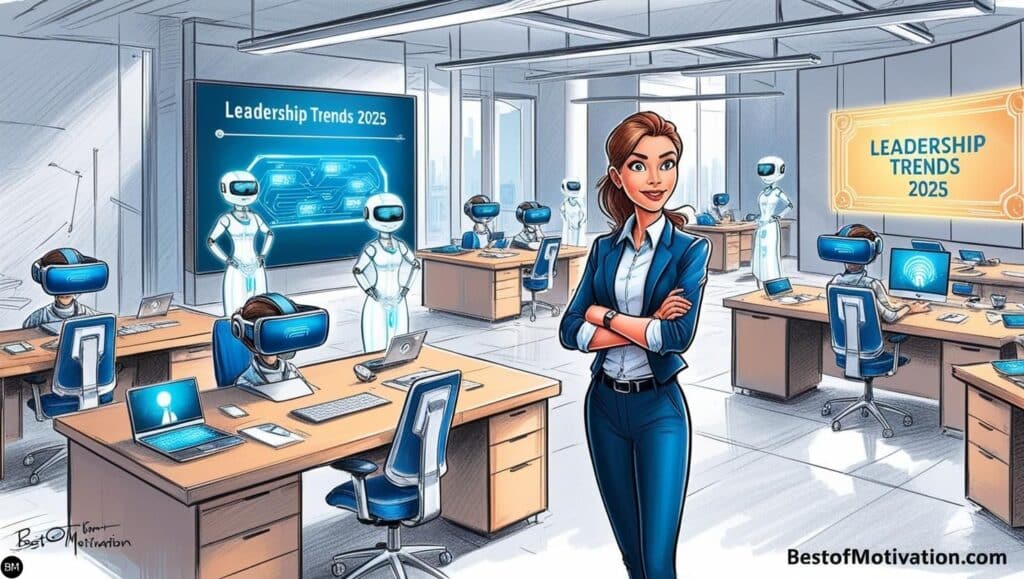
Emerging Trends
- AI-Driven Insights: Leveraging AI to predict market trends and employee needs.
- Virtual Reality (VR) Collaboration: Enhancing remote teamwork through immersive virtual environments.
- Purpose-Driven Workplaces: Aligning corporate missions with social and environmental impact.
Skill Development Path
- Enroll in Leadership Programs: Look for courses emphasizing digital leadership and empathy.
- Practice Active Listening: Join workshops or use apps designed to improve listening skills.
- Stay Tech-Savvy: Regularly explore new tools and platforms to maintain a competitive edge.
Resource Recommendations
- Books:
- Leaders Eat Last by Simon Sinek
- The Future Leader by Jacob Morgan
- Podcasts:
- The Modern Manager
- HBR Ideacast
- Tools:
- Slack for team communication
- Notion for project management
Action Steps
- Reflect on Your Leadership Style: Identify areas for growth and seek mentorship.
- Build a Personal Brand: Use LinkedIn to share insights and connect with industry leaders.
- Experiment with New Tools: Test AI solutions, project management apps, and communication platforms to find what works for your team.
🌟 Leadership FAQ 2025
What makes Gen Z leaders unique?
– Highly proficient in using digital tools and technologies.
– Focused on inclusivity and collaboration.
– Driven by purpose and social impact.
Why is empathy important in leadership?
– Builds trust and improves team relationships.
– Fosters psychological safety and open communication.
– Helps address individual team member challenges effectively.
How can leaders adapt to hybrid work models?
– Leverage tools like video conferencing and collaboration platforms.
– Set clear goals and expectations for remote workers.
– Encourage team bonding through virtual and in-person activities.
What leadership skills are essential for the future?
– AI and technology integration for decision-making.
– Remote team building and communication.
– Change management and mental health leadership.
How is AI transforming leadership?
– Automates repetitive tasks for better efficiency.
– Provides data-driven insights to improve decision-making.
– Enhances employee performance tracking and engagement.
What trends will shape leadership in 2025?
– Increased reliance on sustainability practices.
– Adoption of AI and hybrid work optimization.
– Global perspective for leading diverse teams.
Conclusion: Embrace the Future of Leadership
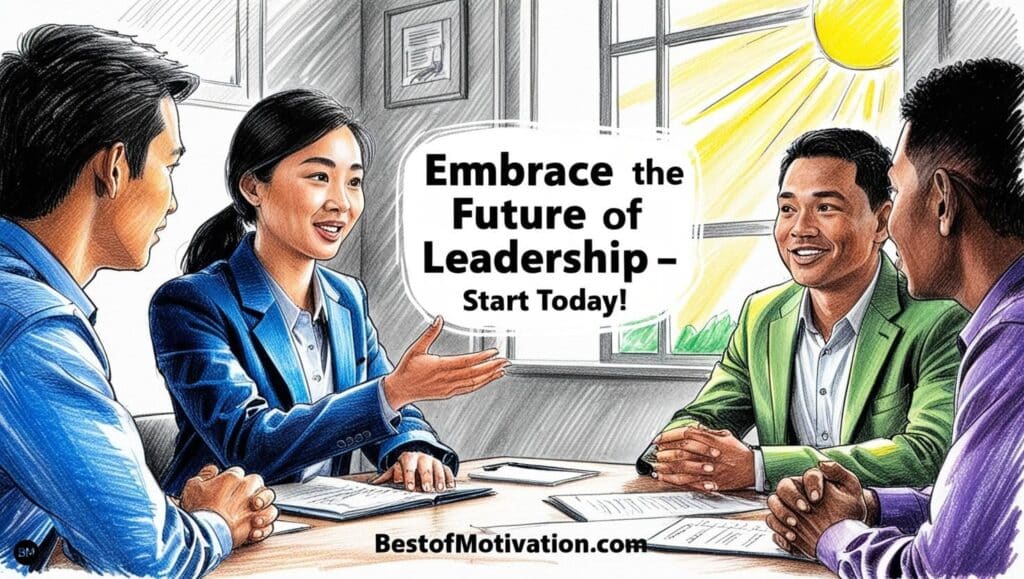
The future of leadership is bright, dynamic, and inclusive. As Gen Z takes the reins in 2025, their unique blend of digital savvy, empathy, and innovation promises to transform workplaces for the better.
What steps will you take today to future-proof your leadership journey? Share your thoughts in the comments and subscribe for more insights into building a thriving career! ✨
✨ Next-Gen Leadership
Transform Your Leadership Journey
AI in Leadership
Embrace technological evolution 🚀
Powerful Leadership Quotes
Wisdom for modern leaders ⚡
Master Success Mindset
Future-ready thinking patterns 💫
Modern Personal Branding
Lead with digital influence 🌐
